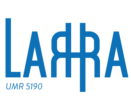Scope note for the class Observation – S4 Back
Candidate
Scope note
- Text
- This class comprises the activity of gaining scientific knowledge about particular states of physical reality gained by empirical evidence, experiments and by measurements. We define observation in the sense of natural sciences, as a kind of human activity: at some Place and within some Time-Span, certain Physical Things and their behavior and interactions are observed, either directly by human sensory impression, or enhanced with tools and measurement devices. The output of the internal processes of measurement devices that do not require additional human interaction are in general regarded as part of the observation and not as additional inference. Manual recordings may serve as additional evidence. Measurements and witnessing of events are special cases of observations. Observations result in a belief about certain propositions. In this model, the degree of confidence in the observed properties is regarded to be “true” per default, but could be described differently by adding a property P3 has note to an instance of S4 Observation, or by reification of the property O16 observed value. Primary data from measurement devices are regarded in this model to be results of observation and can be interpreted as propositions believed to be true within the (known) tolerances and degree of reliability of the device. Observations represent the transition between reality and propositions in the form of instances of a formal ontology, and can be subject to data evaluation from this point on.
- Language
- en




Comments
No comment found.